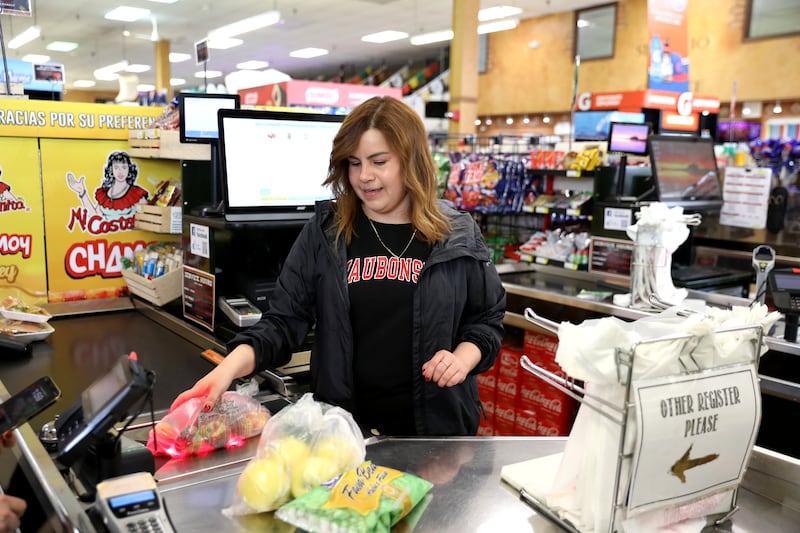ST. CHARLES – St. Charles could soon join a long list of Illinois municipalities enacting a local 1% grocery tax in 2026, despite state lawmakers’ plans to eliminate the tax effective Jan. 1.
More than 200 municipalities in Illinois have already decided to impose a local grocery tax next year, with many more, like St. Charles, considering it.
St. Charles and Geneva are two of the last Kane County municipalities yet still undecided, after Batavia voted in May to impose the tax, joining Algonquin, Burlington, Montgomery, North Aurora, South Elgin and Sugar Grove.
The St. Charles City Council is expected to put the tax to a final vote at its July 7 meeting.
City staff, in favor taxing groceries, have presented a local tax as maintaining the “status quo,” not enacting an additional, new tax on residents. City finance director Bill Hannah presented that view for the first time to officials during a recent Government Services Committee meeting. The committee supported the tax unanimously, though a Council vote still is needed.
St. Charles has several grocery stores, including Costco, Meijer, two Jewel-Oscos, Walmart, Target, Aldi, La Huerta and the newly opened Whole Foods.
Hannah said the city would lose about $2 million in annual revenue if local grocery purchases weren’t taxed anymore. Hannah argued the funding loss would negatively impact public health and safety services the city provides. Hannah said a tax on groceries has more impact on out-of-town shoppers than St. Charles residents. He cited data the city collected through artificial intelligence on foot traffic, which he said showed that 27% area stores’ customers were St. Charles residents.
“A majority of this grocery tax can be presumed to be paid by non-residents,” Hannah said. “That alleviates the burden that is put on residents for funding city services.”
Placer.ai is an artificial intelligence analytics software that uses geospatial data from people’s cellphones – provided by cellular networks – to monitor travel patterns and spending habits of people in St. Charles.
The City uses the data to track foot traffic and consumer behavior, as well as to gauge the success of events and businesses.
Of the seven grocery stores in the city, five saw more foot traffic from non-residents than residents, according to Pacer.ai. Hannah estimated that out-of-town customers accounted for about 65% of the grocery tax revenue collected at St. Charles stores.
Under Gov. JB Pritzker’s plan to eliminate a statewide tax, municipalities have until Oct. 1 to enact their own local taxes, which would take effect in January 2026.
While some residents and business owners have suggested getting rid of the tax would drive business to St. Charles stores, increasing sales and offsetting the loss of revenue, city staff had other ideas.
Hannah said the city has historically used the tax to incentivize grocery store retailers to set up shop in St. Charles, citing past incentive agreements with Costco and Whole Foods.
Other options to recuperate potential lost tax revenue, Hannah suggested, included increasing property taxes. He said a 14% increase to property taxes would be needed to generate $2mil, which was not considered a viable option by staff.

:quality(70)/s3.amazonaws.com/arc-authors/shawmedia/5e395e17-6ee2-461c-8837-02706d64bc46.png)